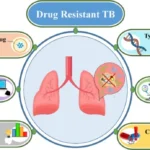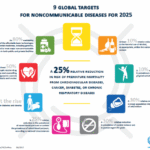New data from the UK Health Security Agency (UKHSA) reveals a concerning trend: antibiotic-resistant infections in England have surpassed pre-pandemic levels. This rise in AMR poses a significant threat to public health, potentially reversing decades of progress in combating infectious diseases. The report underscores the urgent need for renewed efforts to promote responsible antibiotic use and develop innovative strategies to combat drug-resistant bacteria.
The UKHSA data indicates that there were an estimated 66,730 serious antibiotic-resistant infections in England in 2023, compared to 62,314 in 2019. This represents a 7% increase and highlights the growing challenge of treating bacterial infections effectively. The most common culprit behind these infections is Escherichia coli (E. coli), a bacterium responsible for a wide range of illnesses, including urinary tract infections, bloodstream infections, and pneumonia.
Antibiotic resistance occurs when bacteria evolve to survive exposure to antibiotics, rendering these drugs less effective or completely useless. The overuse and misuse of antibiotics are major drivers of this phenomenon, creating selective pressure that favors the survival and spread of resistant bacteria. Inappropriate antibiotic prescribing for viral infections, such as colds and flu, and the failure to complete prescribed antibiotic courses contribute to the problem.
The consequences of AMR are severe. Infections that were once easily treatable can become life-threatening, leading to prolonged hospital stays, increased healthcare costs, and higher mortality rates. The rise in AMR also threatens the success of routine medical procedures, such as surgeries, organ transplants, and cancer treatments, which rely on effective antibiotics to prevent and treat infections.
The UKHSA report also highlights significant disparities in the burden of AMR. People living in the most deprived areas of England are disproportionately affected by antibiotic-resistant infections, with a 42.6% higher likelihood of acquiring such infections compared to those in the least deprived areas. This disparity underscores the social determinants of health and the need for targeted interventions to address health inequalities.
In response to the growing threat of AMR, the UK government has launched a National Action Plan (2024-2029) aimed at containing and controlling AMR by 2040. The plan includes measures to reduce antibiotic use in humans and animals, improve infection prevention and control in healthcare settings, enhance surveillance of AMR, and invest in research and development of new antibiotics and alternative therapies.
The UKHSA is also working to raise public awareness about the importance of responsible antibiotic use. Public education campaigns emphasize that antibiotics are ineffective against viral infections and should only be taken when prescribed by a healthcare professional. The agency also encourages the public to practice good hygiene, such as frequent handwashing, to prevent the spread of infections.
Combating AMR requires a multi-faceted approach involving healthcare professionals, policymakers, researchers, and the public. By working together, the UK can mitigate the threat of antibiotic-resistant infections and ensure that these life-saving drugs remain effective for future generations.
















